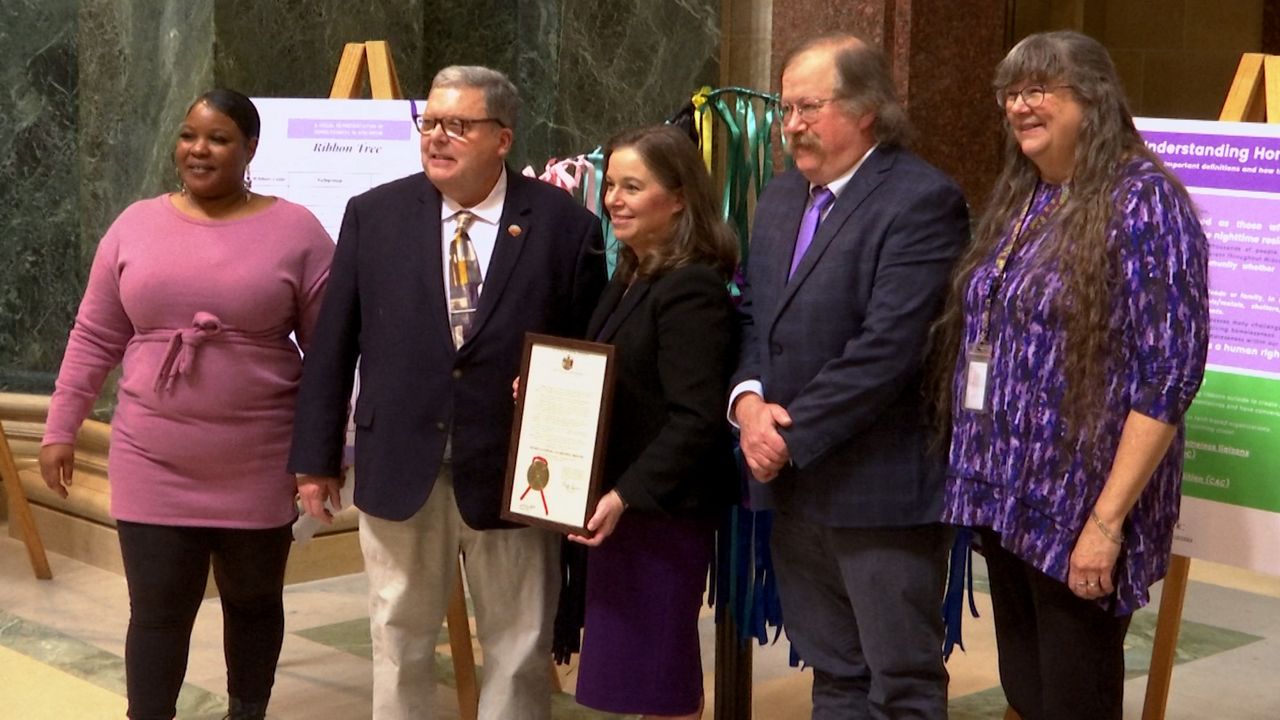MADISON, Wis. — Homelessness Awareness Month kicked off at the Wisconsin Capitol on Wednesday as lawmakers turned their attention to concerns about an issue that reaches all corners of the state.
The most recent statewide point-in-time count data available found more than 4,800 Wisconsinites experienced homelessness whether they were living in transitional housing, living on the streets, or in their car. However, Lt. Gov. Sara Rodriguez said there are plenty more people who face housing insecurity but are unaccounted for.
“This does not include the thousands of people with families who are able to survive doubled up in homes with family and friends,” Rodriguez explained. “This does not include people who need to flee situations of domestic violence, and this does not include the thousands of households who are housing insecure.”
Rodriguez joined State Rep. Patrick Snyder, R-Schofield, on Wednesday to deliver a proclamation recognizing Homelessness Awareness Month with the hopes of not only talking about solutions but the stigmas, as well.
“There are issues such as mental health and substance use that affect people experiencing homelessness as there are for people that are housed,” Mike Basford, with the Wisconsin Interagency Council on Homelessness, said. “The number one cause of homelessness is the lack of affordable housing, and the number one solution is to create more housing so that we can house people.”
Rep. Snyder agreed and told those gathered in the Capitol rotunda that Wisconsin needs more housing first initiatives similar to Utah and programs in Milwaukee.

“If we’re going to address some of the problems that some of these homeless individuals have with drug addiction, mental health, whatever that case, they first need to get a roof over their head and be able then to address what they might need, so that’s an area we need to continue,” Snyder said.
Lawmakers expressed optimism that the state can make progress on the issue, but they acknowledged it will take a lot of collaboration with community leaders, stakeholders, and even churches and religious-based groups.



